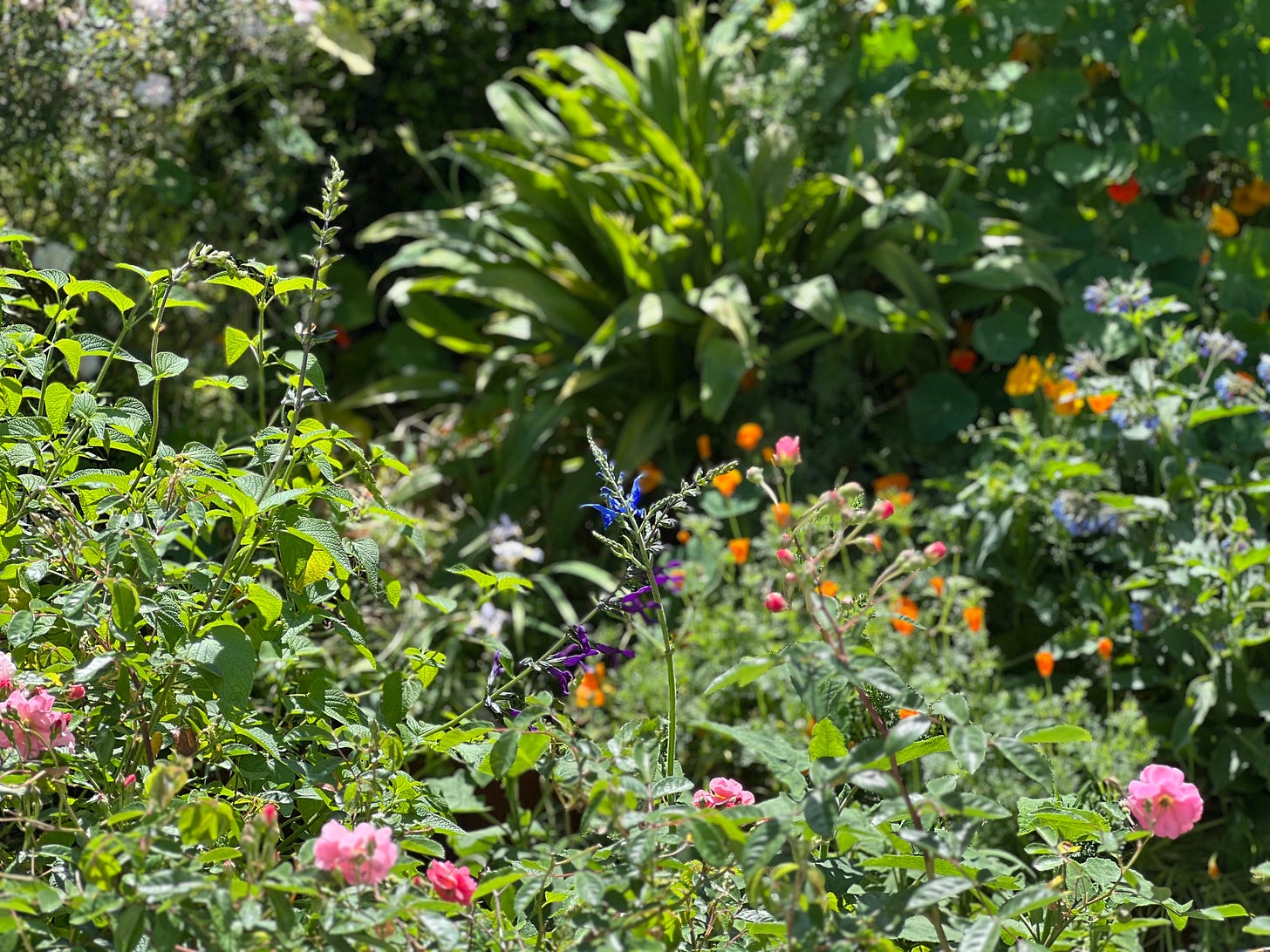As some of you will know, the Projectkin community was born as the Ponga platform was withdrawn from the market on May 22nd, 2023. The software gave family historians an innovative way to organize and add stories to old photos. Though beloved, it wasn’t enough to break through with the resources we had. As co-founders, we took the platform offline while we could manage it gracefully, refunded subscriptions, and returned archives.
This first year.
I started this new community with a simple sign-up form hastily named “Post-Ponga.” We adopted
’s popular Kathy’s Corner series from Ponga and made it a recurring event. Soon, I added Project Recipes, Tutorials, and Clinics. We found a platform to support an online clubhouse, and it quickly became a popular way to exchange messages and tips.By August 2023, you could feel it. We’d become a community. When AJ, an active regular asked, “What’s Ponga?” it was clear we needed a new name.
Ponga was now history. We’d become something new. I’d thought about it but could no longer put off decisions about the name and even our mission.
It didn’t take long.
Post-Ponga becomes Projectkin.org — and decamps to Substack
We had very clearly become a community of family historians hooked on stories. We were all trying to find better ways to capture, curate, and share our stories. We talked about this work in a variety of projects. Brainstorming quickly led to the name “Projectkin.” Our new home became Projectkin.org.
I wanted it to remain free, independent of platforms, and supported entirely by member contributions, not fees or advertising. From experience, I could see that advertising, sponsorships, affiliate programs, or member fees would distort my relationship with our members. It was obvious to use a .org domain.
I discovered the complementarity of the Substack business model not long after the name change. By the end of our Thanksgiving holidays, I’d moved the community to Substack as the
.There’s more on our About page. I’m here now both as myself,
and as the .
So, here we are
We flourished with Substack’s recommendation engine and the warm welcome of explorers who had been on Substack long before us. Family historians like
and offered tips and got me started. Since our launch, the community multiplied in size in parallel with a growing Family History community on Substack. Other family historians on Substack have innovated with shoutouts like ’s and ’s incredible GenStack Note circulated every Saturday as part of her substack, .As Projectkin, we’ve published over 100 posts, including audio and video recordings and articles. Our community members, friends, and collaborators have contributed engaging family history posts, various event types, and regular discussions threaded into Posts, Notes, and Chats.
As Americans, my Ponga cofounders kept our initial business focus on US-based customers. As Projectkin, however, none of that mattered anymore. I wanted to build a global community since many family histories include migrations across transnational borders.
To reach our global membership, I scheduled events to alternately favor1 the Atlantic and Pacific time zones.2 Our subscribing members now stretch around the anglophone world from Europe across the Atlantic and the Pacific to Western Australia.

New subscribers consistently tell me they discovered Projectkin from a friend’s recommendation. If you think Projectkin might be valuable and informative to others, take a moment to share a Note with a shoutout or share Projectkin as a link with friends and family.
I love being a part of this incredible community where everyone is paying it forward with comments and suggestions, too. They’re a compelling form of referral. I do my best to keep up with the “blurbs” accompanying recommendations, but they take a minute to craft. I want each one to be appropriate and honest.
If you’re already on Substack with a publication of your own, tell me about it. If you need help building your stack, let me know. I’m always happy to help where I can. I’d also love to add a few words to recommend your publication to our community. I know how compelling those blurbs have been on our Projectkin Welcome page. Just drop me a note:
Looking ahead
Candidly, I no longer worry about the economic viability of this community. Leveraging a platform like Substack, our expenses are minimal. Our members’ enthusiasm has created a ready pipeline of events, topics, and discussions. Though I started as a founder, I’m now a community gardener. I’m here to foster new growth, prune out bits that aren’t working, and encourage innovation. It’s about strengthening what we’ve started.

Technology should help, not hinder, communication.
Let’s start with languages.
As our community grows, we’re also reaching a larger audience. With more members, we’re attracting more stories and gaining a broader perspective. English has been a great start, but I’d love to add sessions in other languages. Perhaps fancy, AI-fueled technologies can help us with real-time translations of our live events or create viable translations of articles and recorded media. We’re close, but not there yet without adding significant costs.
Improving the quality
Quality is an ambiguous term, but in video recordings, it’s pretty easy to detect the high quality of 1080p or even 4K video. Since moving to Zoom a month ago, we’ve seen an improvement. I’m continuing to refine our configurations to improve the quality of our recordings, transcripts, and programming. I want to get at least 720p performance in our recorded videos reliably. If you have tips for me, I’m all ears.3
New programs, new connections
Programs and special events are at the heart of Projectkin. With a membership distributed across the English-speaking globe, they allow us to meet in person and get to know different members of the larger community. Our gathered attendees now feel like a loyal studio audience for what gets distributed like a podcast and viewed hundreds of times. I’m frankly astonished.
Creative programming
While our popular Project Recipes and Kathy’s Corner will continue, I’m eager to experiment with new event types. Our six-part RootsTech series and the two-part series on publishing it inspired were both hits: Part one focused on Why and What, and part two drilled into the practical challenges of How.
I expect to continue with these kinds of special events, building on what’s now in the archive. I have a range of ideas, including:
Bringing Substack’s many remarkable historians into Projectkin events.
Inspiring members in their projects with new ways to use maps, timelines, and other interactive tools in their projects.
Using private audio and video recordings, podcasting, and other techniques to bring the richness of human voices into our family archives.
Have more ideas for me? Resources to suggest?
Project Recipes were our baby step into creative programming, and our members have jumped in with an incredible array of projects. Take a look.4 Have you noticed how many events have been presented by returning members? There are more posted each month.
Migration stories?
There’s one whole category of stories begging for integration into our programming: Migration Stories. I love these stories because they peel back layers of history to show us how we’ve preserved — and rejected — the cultures of our ancestral homelands. Some are hero stories, but many, in all candor, are not. Let’s talk about that.
I don’t have a specific plan yet, and I’d love suggestions.
Members’ Corner Events?
I’m also considering a monthly live event to celebrate contributions to the Members’ Corner. Let me know if you think this might be interesting — and if you’d like to be featured. With our May cohort, I’ve introduced the first thematic series for the Members’ Corner:
Watch as we focus on stories of those who served in the armed forces.
The articles contributed for May are so touching. Stay tuned for the first of those starting next week. I already have Members’ Corner posts in queue for June, but there’s plenty of room. Would you like to see one of your family stories in the collection? Here’s how to join the Members’ Corner:
Projectkin is about its members
Though it may seem odd to long-time members, I’m often asked about our business model: “Wait, if it’s free, why are you doing this?” I honestly love that question because it tells me that the person asking has thought about the economics of a platform. They’re protective of their information and assets. Everyone should be. As the saying goes:
“If you’re not paying for a product, then you ARE the product.”
The key here is that this isn’t a product. It’s a community. I want it to be free because it should be about and for you. The economics of modern platforms have made it possible to support this with modest operational contributions.
As I share on the About page, I take full advantage of Substack's economics and other tools to support this community. My operational cost is just US$20 a month, an amount that’s partially offset by your generous contributions on the BuyMeACoffee platform. Even better, my expenses don’t go up as our membership grows.
In the coming year, I expect to share my accounting publicly and add creative pieces you can buy to help support the community. In time, I may even be able to thank our guests with gifts. I’ve had a “cookbook” of project recipes in mind as a fundraiser, for example. I’d love to hear your creative ideas. I can always do logo tee shirts and tote bags, but I’d prefer to be more creative and keep an eye on sustainable solutions. Have an idea? Please drop me a note.
Press coverage
Given that we’re still relatively small, one of the best ways you can contribute is to tell your friends. While recommendations and social sharing are generous, press coverage lets us scale our visibility. I always welcome tips and opportunities to present Projectkin to the general media, local news, and genealogy newsletters.
Podcasts, social media boosts, and local press coverage can be a huge boon to us. Tami Mize of ConferenceKeeper.org has been a wonderful supporter, graciously including Projectkin in her weekly newsletter to thousands. I see pops in subscribers with each mention. Inclusion in podcasts from
and has made a world of difference. Incredible supporters like and have turned their independent communities into supportive spokes in this giant wheel of Family Historians on Substack. These supporters are also all members, and their insights have added to the richness of our community. 🥹Now, what do YOU think?
Over the coming months, you can expect more surveys and questions on Notes from me. Your feedback will guide my additions — and subtractions. I’ll solicit ideas and add questions. As I see it, we’re here not just FOR you — we’re here BECAUSE of you. Your feedback is the other side of a dialogue.
If I had known then what I know now, would I have attempted this Projectkin? Nope, not a chance! But look where we are now.
🙇♀️ Thank you.
Though I know I had a role in the building of Projectkin, it happened because of you. Thank you for all you do. Happy birthday, Projectkin. 🥰 It’s a big day.
Help us celebrate by digging into your archives tomorrow with our monthly Kathy’s Corner event. We’d love to see you.
I’ve tried to defer to my guest author and speaker spelling preferences, favour vs. favor, for example. As I become the minority, I appreciate your patience with my American eccentricities. 😉
If you’re new to this, Pacific-edition events are scheduled at 4 PM PT, 7 PM ET, 9 AM AEST, 7 AM AWST, and 12 AM BST, and Atlantic-edition events are at 10 AM PT, 1 PM ET, 6 PM BST, 19:00 CET.
Notice, by the way, that I’m giving everyone who reads this immediate access to our recordings. And why not? If you’re this interested to read through this lengthy article, you’re already one of us. I’m confident you’ll subscribe. Remember, it’s free!










Share this post